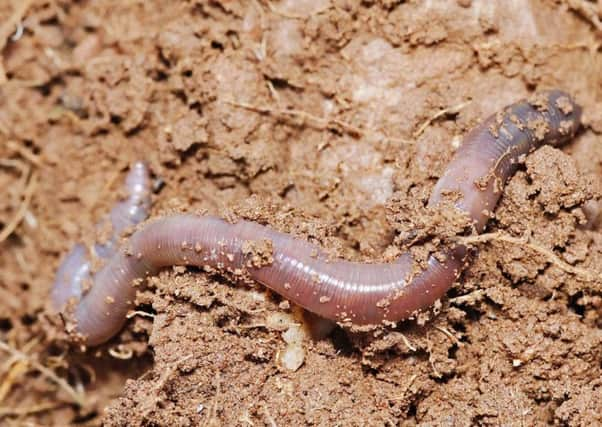Worrying fall in worm numbers on some English farmland
This article contains affiliate links. We may earn a small commission on items purchased through this article, but that does not affect our editorial judgement.


More than 1,300 hectares were surveyed from all over England for the project, including fields managed under arable, potatoes, horticulture and pasture with funding from the Natural Environment Research Council.
Dr Jackie Stroud, a soil security fellow at the Rothamsted Research science base in Hertfordshire said the results indicate widespread, historical over-cultivation and may explain declines in other wildlife, such as the song thrush, that feed on earthworms.
Advertisement
Hide AdAdvertisement
Hide AdYet the presence of earthworms is vital, she said, for carbon cycling, water infiltration, pesticide movement, greenhouse gas emissions, plant productivity, the breeding success of birds and the susceptibility of plants to insect attack.
Dr Stroud said: “Earthworms are sensitive and responsive to soil management which makes them an ideal soil health indicator.
“The aim of this research was to find a baseline of farmland earthworm populations that would be useful and used by farmers to assess soil health now and in the future.”
The #60minworms project was the first comprehensive worm survey concentrating solely on farmland and was carried out by farmers themselves.
Advertisement
Hide AdAdvertisement
Hide AdEach farmer volunteered to dig 10 pits across one of their fields in order for surveys to be carried out.
An identification guide helped them to allocate any sightings to one of the three main types of earthworm – surface dwellers, those that burrow deep and topsoil worms.
Dr Stroud believes that empowering farmers to survey their own soils on a national basis would save about £14m in soil health monitoring.
She said: “Decisions made above the ground, whether by farmers or policy makers, influence the billions of earthworms that are engineering the soil ecosystem below the ground.
Advertisement
Hide AdAdvertisement
Hide Ad“Crucially, working together with farmers, we now know typical earthworm numbers in agricultural soils and between us have developed a quick method for ongoing monitoring.”
Some 57 per cent of the farmers who took part in the study said they would change their soil management practices as a result of the findings.